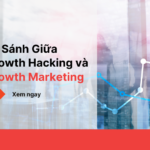Big Ops does not simply indicate the growth of data, but it also implies the interactions between each individual and data every single day, and it has shown its spectacular growth that even exceeds the data’s in the world. Then, what Big Ops is and what impact that it has to data and business? Let’s learn more about this term and related information in this article with Kyanon Digital.
1. What is Big Ops?
In order to have an understanding of Big Ops, firstly, it is necessary to have some knowledge of Big Data. Big data is a combination of structured, semistructured and unstructured data collected by organizations that can be mined for information and used in machine learning projects, predictive modeling and other advanced analytics applications.
According to Scott Brinker, groups of back-office and front-office apps, agents, automations, and algorithms have made their emergence everywhere. And each of these clusters has its own “ops” specialists: marketing ops, sales ops, customer success ops, partner ops, web ops, rev ops, finance ops, and many more. And to Blinker, he considered this whole environment and its bustling ecosystem to be “Big Ops.”

In brief, Big Data was a revolution for handling the enormous volume, variety, and velocity of data flowing through organizations today. Big Ops will be about managing the growing volume and variety of apps, automations, processes, and workflows operating in brands and agencies on top of that universe of data.
Or in more visual description, Brinker once expressed that, Big Data is like a massive mountain of sugar, and Big Ops is the herd of thousands of ants busily gathering on it. All the apps, agents, algorithms, automations, etc., feasting, moving, and transforming it, everything at just one time.
2. Data Intelligence and Data Reflexes
It is understandable that there will be a continuous growth of the data’s scale in business, but the mechanics of piping and storing it will be relatively easy and commoditized with cloud platforms. Data competitiveness will be a function of two things:
- The source of your data: its accuracy and freshness; its provenance and legal permissions; and its exclusivity.
- How effectively you distill and activate that data in your business operations and customer experiences and its exclusivity.

Capturing available data and making use of it is a start, but the “making use of it” part has a large range of possibilities that influence its impact. Data grows in value in two dimensions:
- The degree to which it is distilled into information, knowledge, and insight;
- The degree to which it is activated in the organization, from reporting to decision-making and, in a big ops environment, driving automated reactions.
Comprehensively, these two dimensions intersect to determine how valuable data ultimately becomes to gain data competitiveness.
Based on a chiefmartec.com and WPP report, research by IDC and Seagate23 showed that approximately 44% of all data available to enterprises goes uncaptured, and out of the data that is captured, 43% remains unused. It is understood that more than two third of the total is not put in use, and those are “dark data”. Therefore, the basic mission of big ops is bringing all the relevant data into the light. Apparently, organizations that excel at distilling data into insights (data intelligence) and activating it in real-time in their operations (data reflexes) will achieve a competitive advantage.
2.1. Data Intelligence
Data intelligence refers to the practice of using artificial intelligence and machine learning tools to analyze and transform massive datasets into intelligent data insights, which can then be used as a competitive and strategic asset to expand their services or investments. The application of data intelligence tools and techniques contribute to help decision makers develop a better understanding of collected information with the goal of developing better business processes.

2.2. Data Reflexes
Harnessing data in big ops, which is developing your data reflexes, relies on data connectivity and data coordination, wrapped by data management and data governance; capabilities that are still in the early stages of maturity for most firms. While having insights by distilling data, data reflexes play a vital role in ensuring those to be used for the right decisions at the right time. For example, data can be merely processed, yet can it immediately trigger a helpful automated response for a customer? In this case, data reflexes are a contributing factor to determine which decisions should be made and the time to make it happen.

3. Challenges with Big Ops
The big challenge with Big Ops is how we develop coordination mechanisms with our distributed, digital group. Given the amplifying effects Big Ops with have on the data it processes, the challenges of identifying and resolving issues with data discrimination, data bias, and data ethics will become increasingly important for agencies and brands.
Just as distributed databases are often “eventually consistent”, with caveats and constraints that must be considered in application logic, big ops environments will face a meta version of this challenge as they strive for eventually consistent operations across all internal decisions and customer-facing experiences.
Centralized software platforms, as well as blockchain and ledger databases, will help orchestrate this complexity. But governance provided by big ops leadership will be crucial to designing and running this digital operations layer effectively. These are ops challenges more than data challenges.

4. Conclusion
Big ops will make big data more powerful than ever. However, while that holds tremendous upside for businesses and customers, it will also amplify problems with bias in data sets. Data that misrepresents people, either through its incompleteness or inaccuracy, will ripple across digital operations faster and with more significant consequences. A crucial element of big ops will be implementing checks and balances to guard against data discrimination and enforcing policies of good data ethics. While technology will help with this mission, leveraging AI to detect operational patterns and anomalies that may indicate data bias or misuse, the weight of good judgment will rest on human shoulders.

Kyanon Digital hopes that this article has provided useful information, and helped you gain a better understanding of Big Ops and make good use of available data to achieve data competitiveness for your corporation. If you have any questions related to this matter, do not hesitate to contact us for specific consultation.


